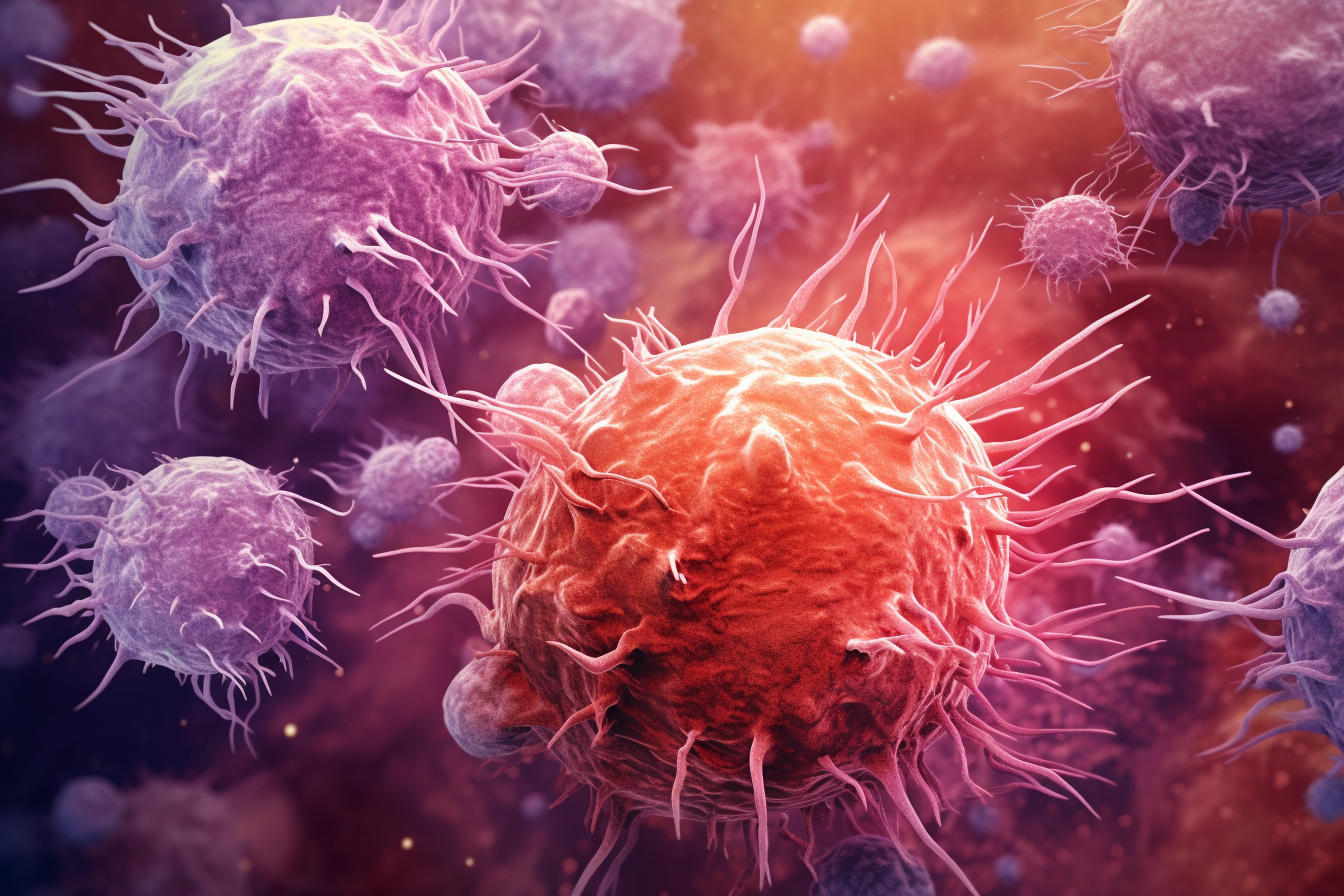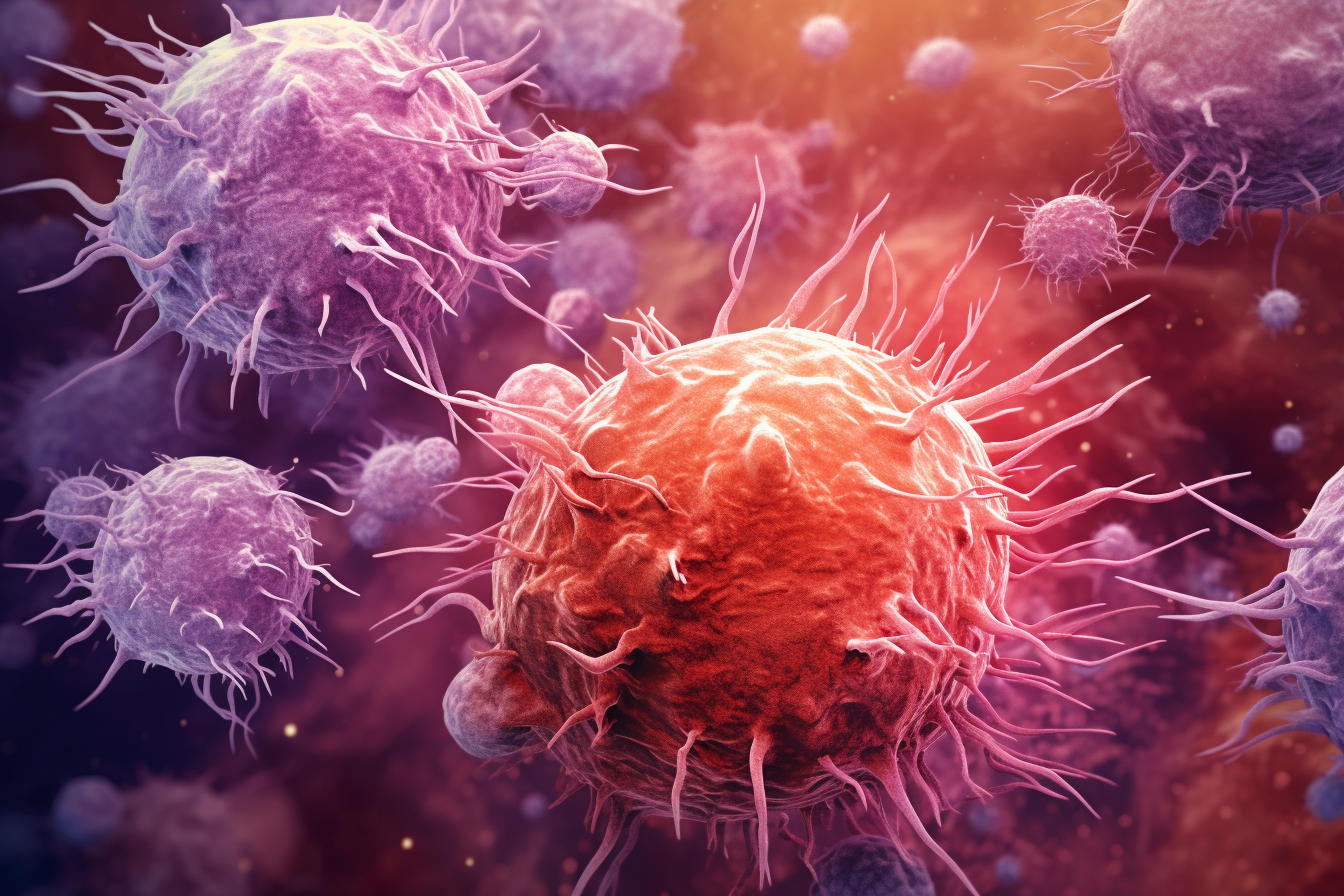Se ha descubierto un punto débil previamente desconocido en el cáncer de próstata

Un equipo de investigación internacional ha descubierto una nueva vulnerabilidad en las células del cáncer de próstata, que involucra un componente del osmosoma que aumenta drásticamente en el cáncer de próstata avanzado, lo que lleva a un crecimiento celular descontrolado. El equipo encontró que la inhibición de este componente dio como resultado una reducción significativa en el crecimiento del cáncer de próstata en comparación con las terapias estándar, lo que ofrece potencial para terapias dirigidas más efectivas aplicables a otros tipos de cáncer.
Una vulnerabilidad previamente no descubierta en las células del cáncer de próstata puede allanar el camino para nuevas estrategias de tratamiento para otros tipos de cáncer.
A nivel mundial, el cáncer de próstata es el cáncer no cutáneo más común entre los hombres. Según estimaciones mundiales, se puede esperar que uno de cada seis hombres desarrolle cáncer de próstata durante su vida, con una tasa de mortalidad anual de más de 375 000 pacientes.
Un contribuyente importante a estas cifras espantosas es la resistencia innata de las células cancerosas a las terapias actualmente disponibles, lo que subraya la necesidad urgente de nuevas estrategias terapéuticas. En un avance innovador, un esfuerzo de investigación colaborativo internacional que involucra a la Universidad de Berna, Inselspital Bern y la Universidad de Connecticut (EE. UU.) ha descubierto una vulnerabilidad previamente desconocida en las células del cáncer de próstata. Curiosamente, esta debilidad particular también puede ser frecuente en otros tipos de células cancerosas.
El estudio fue dirigido por Mark Rubin del Departamento de Investigación Biomédica (DBMR) y el Centro de Medicina de Precisión (BCPM).[{” attribute=””>University of Bern and Inselspital Bern, and Rahul Kanadia from the Department of Physiology and Neurobiology and the Institute for Systems Genomics at the University of Connecticut. The research results have now been published in the journal Molecular Cell.
Previously unknown driver of prostate cancer identified
“We took a closer look at a certain molecular machine called the spliceosome,” explains Anke Augspach, lead author of the study and researcher from the Department for BioMedical Research (DBMR). “It plays an important role in the translation of genes into proteins. In this process, the spliceosome separates parts of the gene that are not needed for the production of the protein and fuses the other parts.”
While almost all genes undergo this process in the so-called major spliceosome, the minor spliceosome is used in less than one percent of genes. “Nevertheless, the minor spliceosome is enormously important because it particularly processes genes that play a crucial role in cell growth. And it is this cell growth that gets out of control in cancer – but the precise mechanism behind this remained unclear,” explains Rahul Kanadia, study co-author from the Physiology and Neurobiology Department and the Institute for Systems Genomics at the University of Connecticut.
In their investigations, the team found various indications for the central role of the minor spliceosome in cancer. “We were able to show that a specific component of the minor spliceosome is significantly increased in advanced prostate cancer,” explains study co-author Mark Rubin of the Department for BioMedical Research (DBMR) and Bern Center for Precision Medicine (BCPM). This led the researchers to suspect that cancer cells activate the minor spliceosome through this component and thus stimulate uncontrolled cell growth.
An entirely new approach to cancer therapies
The researchers were able to confirm their assumption with the help of laboratory test models such as 2D cell cultures and organoids – miniature organs that are grown in the laboratory based on patient samples. They were also able to show that inhibiting the specific component led to a greater reduction in the growth of prostate cancer than current standard therapies.
“Accordingly, blocking this process should hold therapeutic potential,” Mark Rubin says. “This is the target that that we were hunting.”
Rahul Kanadia adds that “the blocking leads to a decrease in cancer growth without affecting the growth and survival of normal cells.”
“This discovery is a game changer in developing more effective and targeted combination therapies for cancers such as prostate cancer and other types of cancer. We want to work on this in the coming years – and have already applied for the corresponding patent,” Rubin concludes.
Research supported with 1 million dollars
The research results come from a project supported by the US Prostate Cancer Foundation (PCF) with the Igor Tulchinsky-Leerom Segal-PCF Challenge Award 2022. The foundation funds interdisciplinary projects that pursue promising approaches to combat recurrent or advanced prostate cancer. The award is endowed with 1 million dollars. “We commend the research team on their achievement and proudly support their work to bring us closer to our mission to eliminate death and suffering from prostate cancer,” says Howard R. Soule, Executive Vice President and Chief Science Officer of the PCF.
Reference: “Minor intron splicing is critical for survival of lethal prostate cancer” by Anke Augspach, Kyle D. Drake, Luca Roma, Ellen Qian, Se Ri Lee, Declan Clarke, Sushant Kumar, Muriel Jaquet, John Gallon, Marco Bolis, Joanna Triscott, José A. Galván, Yu Chen, George N. Thalmann, Marianna Kruithof-de Julio, Jean-Philippe P. Theurillat, Stefan Wuchty, Mark Gerstein, Salvatore Piscuoglio, Rahul N. Kanadia and Mark A. Rubin, 8 June 2023, Molecular Cell.
DOI: 10.1016/j.molcel.2023.05.017

“Defensor de la Web. Geek de la comida galardonado. Incapaz de escribir con guantes de boxeo puestos. Apasionado jugador”.

